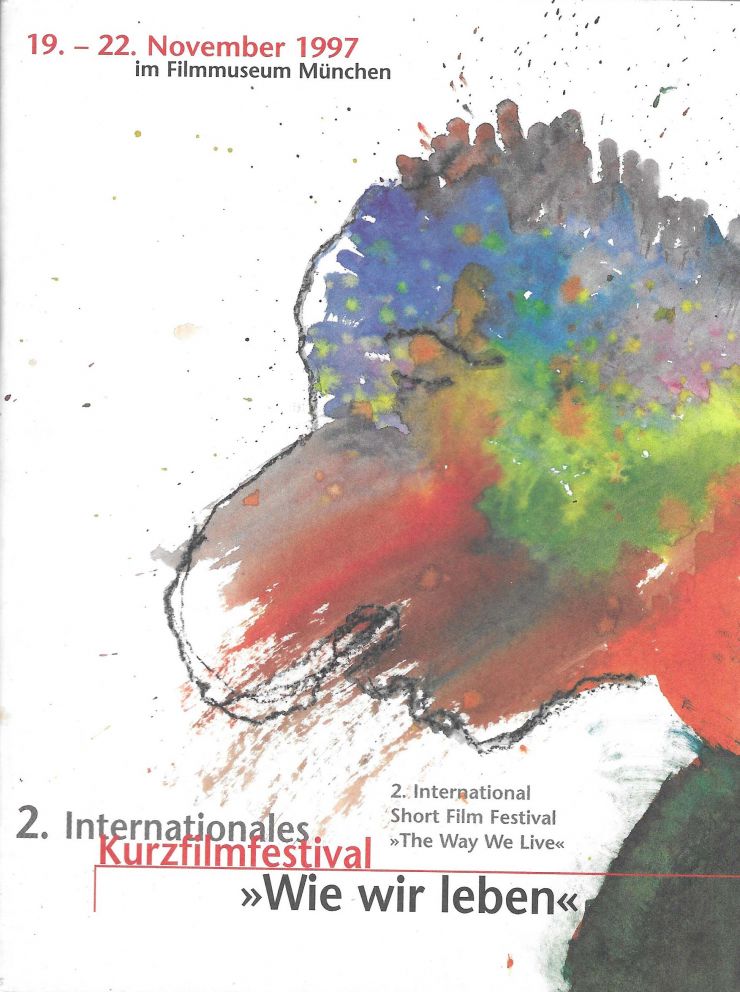Link review of the Munich Disability Film Festival in 1995
Wie wir leben, or, The Way We Live
In November I attended, as a juror, the 1st International Short Film Festival Wie wir leben (translated as The Way We Live) in Munich. An interesting experience to say the least. As a film festival there were a lot of television programmes entered which was a shame as it highlighted the lack of disabled film makers out there at present. And most of the entries were very much of the inspirational kind. But some gems were to be found amongst the ordinary: the winner (which won a prize of £4,000), a German film called ... Be Aware of Trudchen Luescher, was an extraordinary study of loneliness and despair in the face of old age and visual impairment made with commensurate skill and humour. That virtually all the films submitted were made by able-bodied people was another great disappointment.
The winner of the special UNESCO prize was an English animation film called A is for Autism, directed by Tim Webb and produced by Channel 4, which explored through the drawing of people with autism their world. It was clearly a work of imagination and in no sense exploitative of its subjects. In a film festival supposedly about disability where few films were made by disabled people the question of exploitation was a central criteria. Another English animation which narrowly missed out on a prize was Disability Is ..., made by a group of young disabled people from Manchester.
The other most notable film was the one which came second, a documentary about a stand-up comedian, who couldn't stand up, called Fred. The subject of the documentary was a guy called Fred Burns, whose impairment was Spina Bifida. Fred is a guy who lives on the seedier side of life, he lives his life like he drives: a little too fast; he also likes his beer, fags and women hard and fast. But, and this is what was so good about Fred, there is a great sense of joy and pleasure in his story and, above all else, he is very funny. There were no other films that covered Spina Bifida, and this was a disappointment to me, but there is always the 2nd festival in a couple of years time, so get filming now!
Munich itself was also a bizarre experience (and extremely expensive) as it ranged from being exceptionally accessible (the underground system was the best I have ever seen and was fully wheelchair accessible if you had a helper to help you cross 4 four inch gap between platform and train) to routinely inaccessible (all the shops had steps due to the snow) and the stares and looks of disdain from the locals were like I have never experienced before. Bavaria, and Munich in particular, are the richest parts of Germany and as such they did not tolerate deviation from the norm very much, but hopefully the festival will play a key part in changing that.



